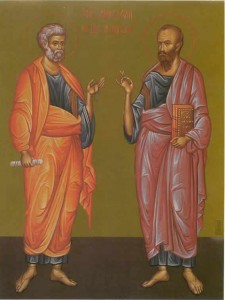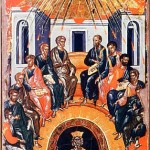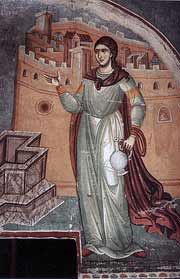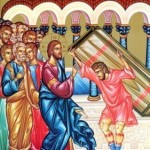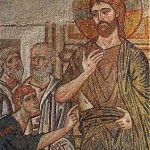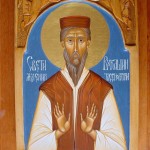 In this Sunday of All Saints, St. Theophan the Recluse teaches about True Christian Love, as we can see in New Martyr Vukasin who our Holy Serbian Orthodox Church remembers on May 29:
In this Sunday of All Saints, St. Theophan the Recluse teaches about True Christian Love, as we can see in New Martyr Vukasin who our Holy Serbian Orthodox Church remembers on May 29:
Friday. [Rom. 2:14–29; Matt. 5:33–41]
“But I say unto you, That ye resist not evil (Matt. 5:39); in other words, allow yourself to be a victim of human selfishness and malice. But how can one live like that? Do not worry. He who gave this commandment is our Provider and Guardian. When you desire to live like this with complete faith from your whole soul, to not resist any evil, the Lord Himself will arrange a life for you which is not only bearable, but joyful. Furthermore, resistance in fact can irritate an aggressor even more and motivate him to invent new troubles, whereas a yielding demeanour disarms him and humbles him. Thus, if you would just suffer the first onslaught of malice, people will take pity on you and leave you alone, while resistance and revenge kindle malice, which is passed on from the individual to his family, and then from generation to generation.”
Saturday. [Rom. 1:7–12; Matt. 5:42–48]
“Love your enemies, bless them that curse you, do good to them that hate you, and pray for them which despitefully use you, and persecute you (Matt. 5:44). There is nobody on the earth without love. People love their parents and relatives, benefactors and protectors. But the feeling of love toward parents, relatives, protectors and benefactors is natural and forms unaided in the heart; that is why the Lord does not give it value. True Christian love is proved by our relationship to enemies. Not only should light and incidental annoyances not extinguish our love for others, but not even attacks and persecutions, misfortunes and deprivations, intentionally and hostilely inflicted. We must not only bless these people, but also do good to them and pray for them. See whether you have such a disposition toward your enemies, and judge by this whether you have Christian love, without which there is no salvation.”
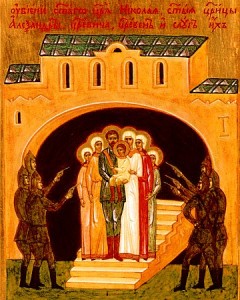 …Tsar Nicholas II and his family were the carriers of the ideals of Holy Russia, of the ideals of Orthodoxy. In contrast to many people of that era – Christians in name only – they treated Orthodoxy with all seriousness. They were God’s elect and, therefore, people not of this world; they were alien to the society of those times. As true Christians, they were persecuted in this world; their sorrowful path was crowned by martyrdom. Now, together with all the other Russian saints, they stand before Christ in prayer for Russia.
…Tsar Nicholas II and his family were the carriers of the ideals of Holy Russia, of the ideals of Orthodoxy. In contrast to many people of that era – Christians in name only – they treated Orthodoxy with all seriousness. They were God’s elect and, therefore, people not of this world; they were alien to the society of those times. As true Christians, they were persecuted in this world; their sorrowful path was crowned by martyrdom. Now, together with all the other Russian saints, they stand before Christ in prayer for Russia.
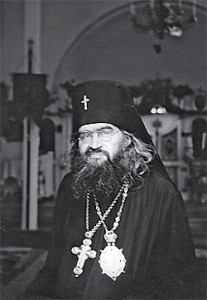 Life and miracles of St. John (Maximovich) Archbishop of Shanghai and San Francisco — one of the greatest saints of the 20-th century.
Life and miracles of St. John (Maximovich) Archbishop of Shanghai and San Francisco — one of the greatest saints of the 20-th century.